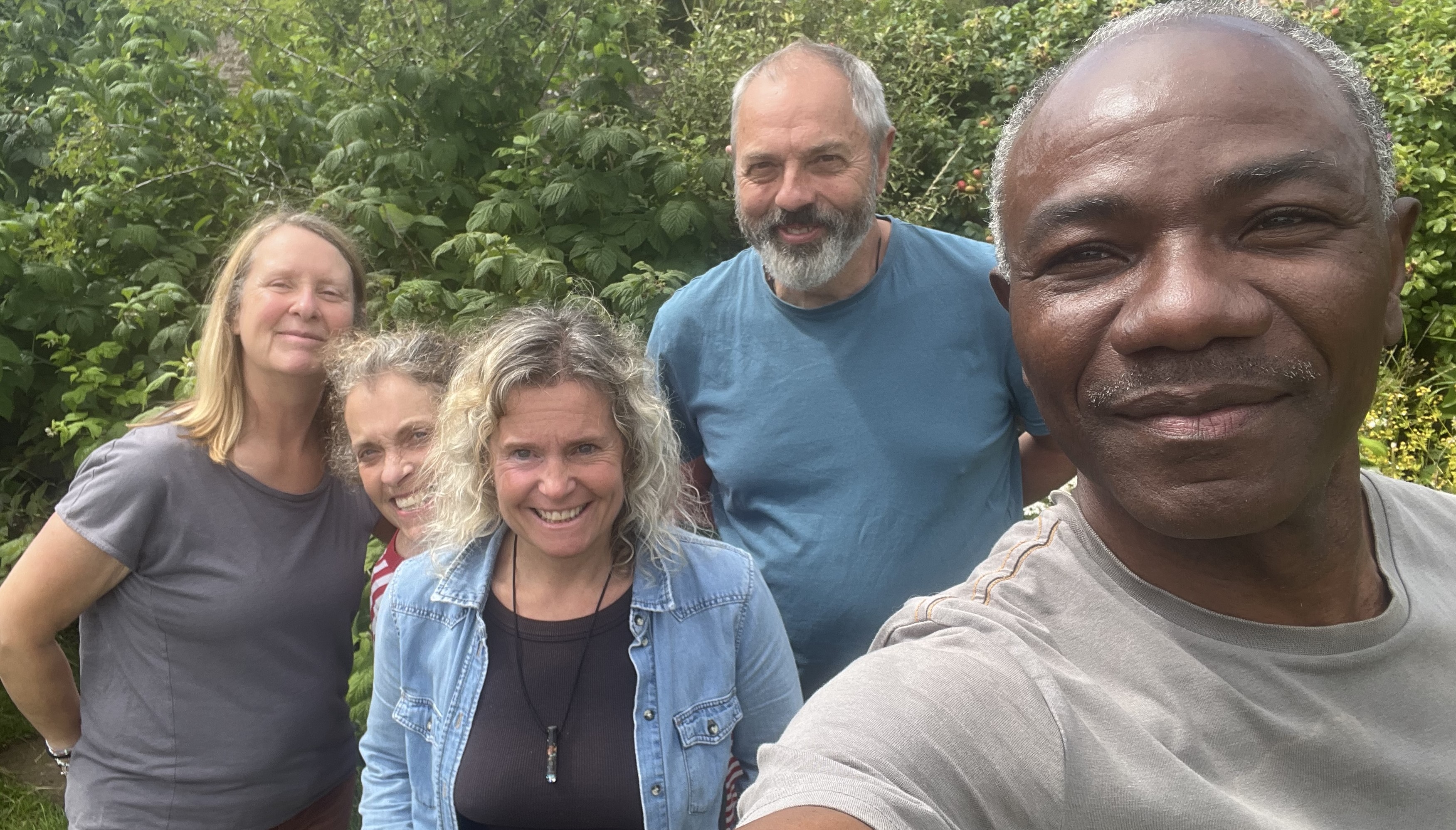Absolutely nothing beats getting together with friends and acquaintances, especially when the friends and acquaintances are like-minded. The like-minded friends I got together with recently are natural beekeepers. All five of them, like me, are passionate about keeping honey bees in an environment as close to the one you will find them in the wild as possible. Is that not how beekeepers keep bees in the first place? You may ask. The simple and empathic answer is no. Conventional beekeeping includes a lot of practises that natural beekeepers baulk at.
However, both natural beekeepers and conventional beekeepers have a passion for helping bees, looking after them when they are struggling with pests, diseases, cold, or heat. Both tribes of beekeepers also lend a colony a helping hand in situations that could make the difference between a colony dying off or surviving.
Where there is a marked difference between natural and conventional beekeepers is when and how they go about lending a helping hand to bees. A natural beekeeper will try to help the bees with “natural” methods, avoiding the use of chemicals at all costs. Honey tends not to be the main motivation for keeping bees when you are a natural beekeeper.
Natural beekeeping workshop in Much Birch
Very few things can get me to my keyboard to write a blog post these days. The natural beekeeping workshop of July 2023 was one of those things I could not resist blogging about. Though I was the host of the workshop, the credit for making it happen goes to Sara Stewart, a natural beekeeper from Worcestershire. Other natural beekeepers at the workshop include Grace, Sarah, Simon, and Andrew. The workshop started in the morning with Andrew sharing his knowledge and experience of a holistic approach to beekeeping. This was summed up in a phrase that was rather new to the rest of the group: “The Bein of the hive”.
Without giving a blow-by-blow account of our day, information that natural beekeepers may find useful is as follows:
Water for your bees
Though bees would travel long distances to collect water, pollen, and nectar, You can give them a helping hand by having water closer to their hive. There are commercially available water solutions for honeybees, and it was observed at the training that bees tend to prefer to collect water from sources beekeepers least expect. The most popular water source bees in Simon’s apiary prefer is the rainwater that collects on the plastic covering of a compost bin. At my apiary, one of the favourite sources of water the bees frequent is a small pond covered in duckweed. They tend to use the duckweed as a landing pad.
Catching a swarm
Most natural beekeepers do not believe in buying bees; they prefer to catch a swarm, or better still, a wild swarm. So, how do you catch a swarm of bees? The best way to increase your chances of catching a swarm during swarming season (usually between May and August) is to put out what beekeepers call a bait hive or bait box. A bait box is usually any space a swarm of bees could find attractive to move into.
When scout bees are looking for a potential new home, some of the things they look for include:
Size of the space – they tend to favour a capacity of at least 40 litres or more.
Has the space been occupied by another colony of bees in the past?
Is the smell of the space to their liking?
How high or low to the ground is the space?
And loads of other factors. You can do a search online for an exhaustive list of what scout bees look for when scouting for a new home.
There may be a lot of spaces humans consider suitable for a colony of bees to move into, but the swarm may not agree and just go on their merry way to somewhere else. The spruce poles in the above picture were a favourite staging post and swarm catcher at my apiary. No fewer than eight swarms use the exact same spot, turning it into a prolific swarm catcher.
Other aspects of natural beekeeping were discussed at our training, including how to select varroa-resistant bees and other important topics.
Would you like to learn more about natural beekeeping? Some resources
- Natural Beekeeping Trust
- Bees for Development
- Bio Bees
- A Beginner’s Guide to Natural Beekeeping
-
Ahh, the benefits in the title of this post
A big thank you to Sara Stewart and the other beekeepers who took part in the natural beekeeping training workshop mentioned in this post. Each participant donated £70 each, which was a fundraiser for Hope Spring Water Charity.



